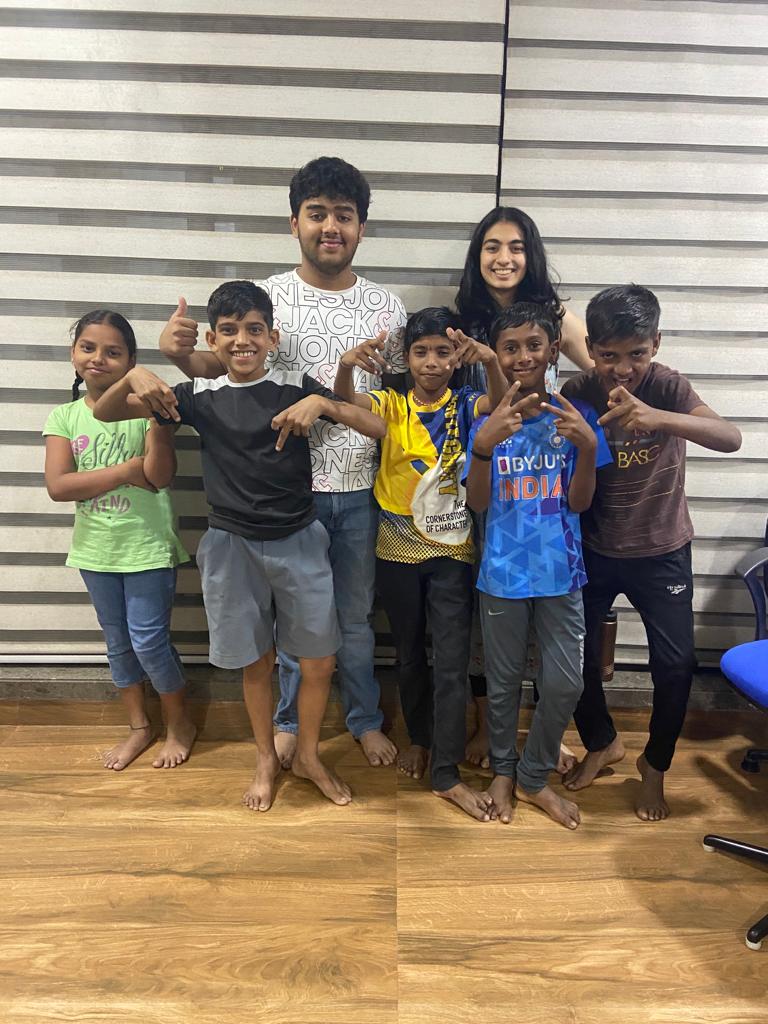For the CAS project, we decided to conduct a bootcamp to introduce and give exposure to children about the existing basic computing environment and coding. We contacted a NGO called DISHA and got in touch with a few kids who were keen about learning computer and coding.
LO1: Identify own strengths and develop areas for growth
Conducting computer classes in a team has provided me with a valuable learning opportunity. At the outset, I felt assured of my technical skills; however, I soon grasped that effective teaching demands more than just proficiency. It necessitates patience, flexibility, and the capacity to convey intricate ideas in a comprehensible manner. While my technological competencies were readily apparent, I also recognized areas where I needed improvement, particularly in articulating methods and demonstrating patience.
LO2: Demonstrate that challenges have been undertaken, developing new skills in the process.
Partnering in computer class instruction brought forth a multitude of hurdles. We found ourselves tasked with lesson planning, synchronizing our teaching methods, and accommodating a wide range of student requirements. This encounter compelled me to venture beyond my familiar territory, as I needed to assume the dual responsibilities of both an educator and a student. I had to acquire the skills of crafting captivating lesson blueprints, resolving technical complications, and modifying my teaching approach in response to student input.
LO3: Planning and initiation of activities
Starting and organizing this CAS experience needed careful thinking and planning. My partner and I began by recognizing that our community, especially students who didn’t have many resources, needed computer education. We made a detailed plan that included setting clear goals for what we wanted to teach, making lesson plans, and getting the things we needed. We also got in touch with local schools and community centers to arrange the classes.
To make sure our project went well, we set specific goals like how many classes we wanted to teach and how well the students were learning. We also made a schedule with points along the way to check how we were doing. This experience taught me how important it is to manage and plan a project well to achieve CAS goals.
LO4: Commitment to and perseverance in activities
The journey of teaching computer classes was marked by its share of obstacles. There were occasions when students encountered difficulties in comprehending specific concepts, and technical glitches occasionally interrupted our lessons. Nonetheless, my partner and I persisted, consistently searching for solutions to overcome these challenges and enhancing our teaching approaches. This encounter underscored the significance of unwavering dedication and resilience when confronted with adversity.
LO5: Demonstrate the skills and recognize the benefits of working collaboratively
Teaming up with my teaching partner was really satisfying. We worked well together because we had different skills, and we helped each other get better in the areas where we could improve. This teamwork didn’t just make our teaching better; it also made our students feel like they were part of a close-knit group. They got to see how important it is to work together and how different ideas can lead to creative solutions.
L06 :- Demonstrate engagement with issues of global significance
During the classes, I found myself tackling matters of worldwide import, notably digital literacy and the digital divide. It became imperative to tailor our teaching methodology in a manner that guaranteed accessibility and advantages for every student, irrespective of their background or prior expertise. This encounter underscored the significance of advocating for equal access to technology education, a global challenge that I am now acutely aware of.
LO7:- Recognize and consider the ethics of choices and actions.
Teaching computer classes also raised ethical considerations. As educators, we needed to ensure that students used technology responsibly and ethically. This experience deepened my understanding of the ethical implications of technology and the role of education in addressing them.




